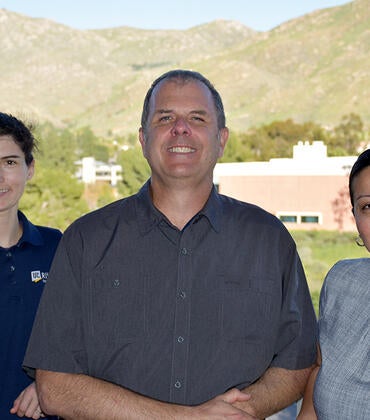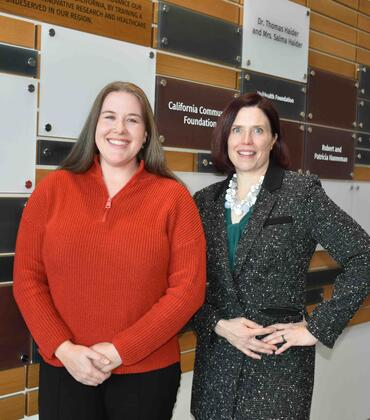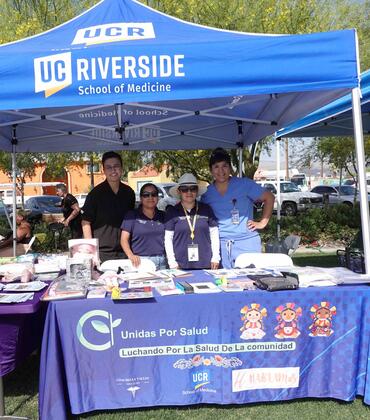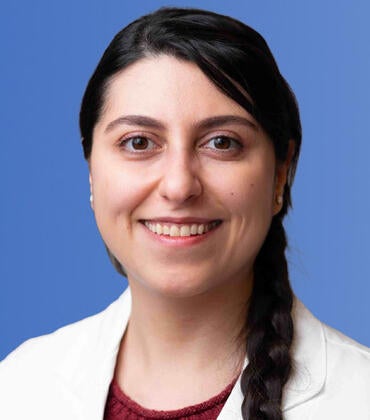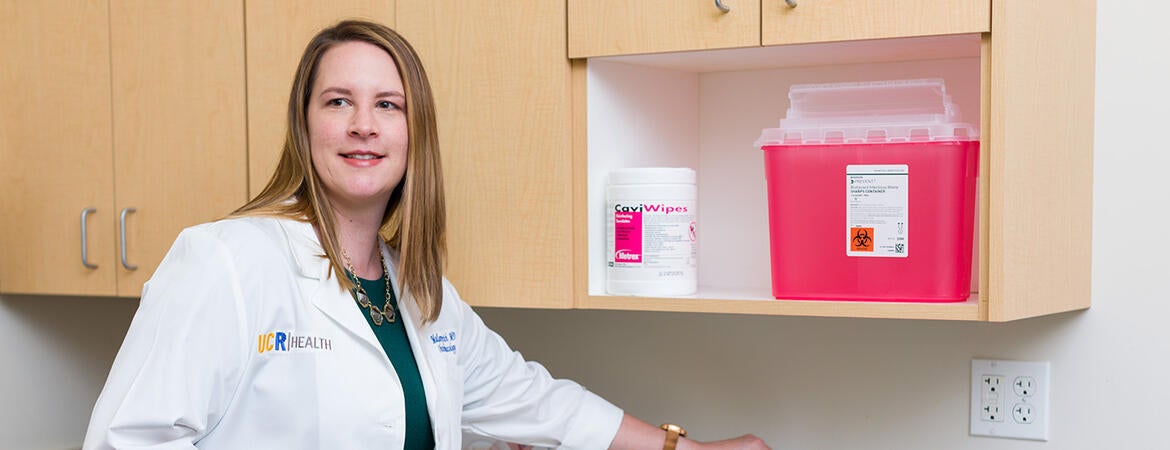
Gynecologist, surgeon, professor, researcher: Mallory Stuparich, M.D., an associate clinical professor in health sciences at the UC Riverside School of Medicine and the associate program director for the Fellowship in Minimally Invasive Gynecologic Surgery, fulfills many roles in her career. Yet in each of them, she seeks to increase both physicians’ and patients’ knowledge around women’s reproductive health and to emphasize one point in particular: that periods shouldn’t be painful.
"If the period is so bad that it needs to be ‘hacked’, then it is time to see a specialist," Dr. Stuparich wrote on her Twitter account in October 2021. “Painful and excessively heavy periods are NOT NORMAL.”
She actively shares this message both on Twitter and her other social media accounts. While patients are sometimes told they must suffer through painful periods, she said, “I'm here to say that that's not normal, and that you should certainly be seeing somebody who has expertise in managing pelvic pain and endometriosis.” She also uses the platform to combat other health misinformation. “If those of us who are experts in the field are not actively talking about these things, then unfortunately, patients may read incorrect information. And so I think it's almost a responsibility of physicians and clinicians to be the predominant voices in the social media sphere,” she said. “It’s particularly important,” she added, “since many patients visit social media sites specifically seeking knowledge about health.”
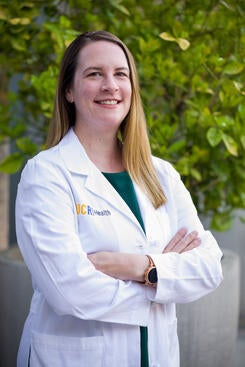
Her messages on gynecologic health apply to a significant portion of the population. Around 50% of people are women, and up to around one-third of women deal with chronic pelvic pain worldwide. While over 10% of American women between age 15 and 44 are affected by endometriosis, an often painful condition involving tissue growing outside the uterus, there remains little awareness around the condition.
Despite ongoing efforts to increase awareness, some patients face significant delays in accessing treatment for pelvic pain. Research shows that for many women, it takes seven to 10 years to receive an endometriosis diagnosis. “It's not uncommon for patients to have seen multiple physicians before they come and see me. I commonly hear of patients being told that the symptoms that they're experiencing can't be that bad, or if you just take some ibuprofen or Tylenol, you should be able to get on with your life. And so I think the first step is listening to the patient, because many of them have been on quite the journey,” Stuparich said. “I can see the sense of relief on a lot of their faces when I'm saying, hey, I hear you, it sounds like you've really been through something that's been awful. Let's talk about our next steps and how we can work together as a team to move towards a solution.”
Listening to patients is crucial to getting them the treatment they need, but Stuparich took it a step further by learning to communicate with many patients in their own language. She uses her Spanish skills, which she gained during her residency in Dallas, TX, to connect with her patients and help lower their barriers to care. Working in an area with a large Latinx population, she said the skill was born out of necessity. Patients “may not speak English, but they still deserve health care and access to it,” she said. “They’re coming to you in a state where it could be the worst day of their life,” she added. “So anything that we can do to make them feel more comfortable will improve their experience and their care.”
Besides using social media and patient education to increase awareness around women’s health, Stuparich has focused on educating students and other physicians throughout her career with the ultimate goal of improving patient care. “Almost assuredly, every single student will have somebody in their life that would require consulting or seeing an obstetrician-gynecologist,” whether for pregnancy, menstrual periods, or related issues, Stuparich said. “One of the motivations that I try to drive home with students is that it really will benefit you to pay attention on this rotation and learn as much as you can.”
She said she loves seeing students understand and apply new concepts in her teaching roles, which include associate clinical professor and MS3 and MS4 clerkship director for obstetrics and gynecology. “That's a very different type of gratification than direct patient care,” she explained. “And it's really a means to exponentially pass along the messages that you're trying to educate the general public about. And of course, these messages are important because they're going to lead to better outcomes for the patient as well.”
In particular, she views videos as an important educational tool. While textbooks still have their place, she said, videos are accessible to learners at all levels and can demonstrate surgical techniques in more detail than a still photo or illustration. Besides using videos to increase endometriosis awareness among physicians so they know where to refer patients, she has also created and studied videos’ ability to increase students’ comfort with the gynecologic operating room.
Some of her current projects include designing a workshop to teach participants to make effective surgical education videos. Alongside Associate Dean for Student Affairs Daniel Teraguchi, Ed.D. and Residency Development Coordinator Alejandra Barajas, she is also researching gender disparities in academic medicine by analyzing medical student performance evaluation letters to look for biases.
How does she make time for her clinical, research, and multiple teaching roles? She follows the advice of her mentor Brigham C. Willis, M.D., former senior associate dean for medical education, to make decisions based on her interests rather than a fear of saying no. “It really has to be an interest of yours or something you're passionate about to where you feel it's justified to give your time,” she said, adding that the common recommendation to say yes to everything may not always be the best fit. “For me, it's taken some time to understand what my priorities are, what I want to devote my time to, because time is something you can never get back. Having those clearly defined priorities and boundaries has been something that I've worked on, and what allows me to identify what I'm passionate about.”
